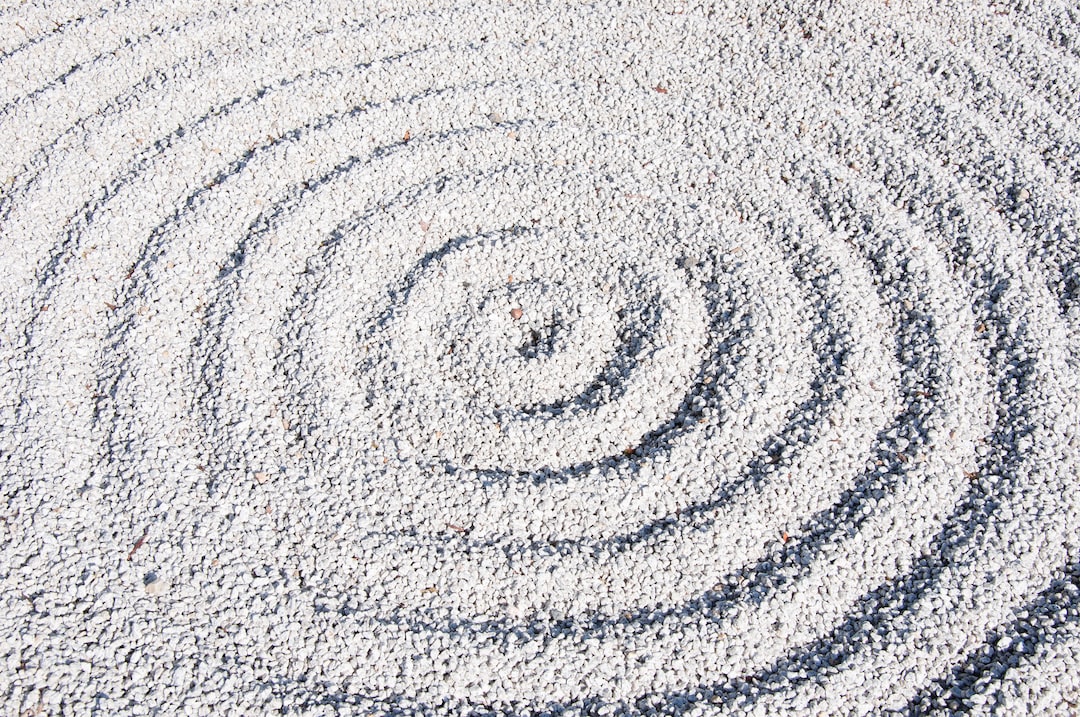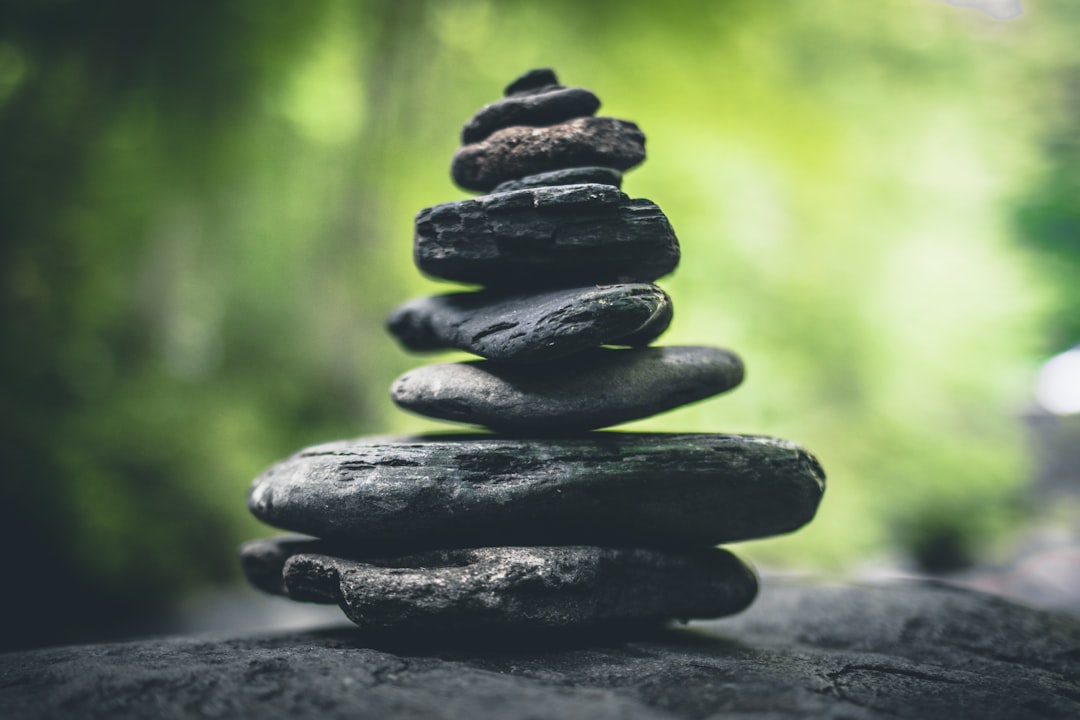Mental health and personal growth are two of the most important aspects of our lives. They not only shape our present but also our future. In a world that is constantly changing, it is vital that we take care of our mental health and strive for personal growth. Incorporating healthy habits into our daily lives is essential if we want to lead a happy and fulfilling life.
Unfortunately, many people still consider mental health and personal growth as taboo topics. But it’s time to change that perception. We need to talk about mental health as openly as we talk about physical health. It’s not a sign of weakness to ask for help when we’re struggling—rather, it’s a sign of strength.
This blog post will explore seven different areas where we can cultivate habits and practices that will promote positive mental health and personal growth. Each section will cover a variety of methods that have proven to be effective for different individuals. So, it’s important to remember that what works for one person may not work for another.
Regardless of individual differences, we can all benefit from implementing some of the practices discussed in this post. They are versatile and easy to adapt to our own unique circumstances. By incorporating these habits into our daily routines, we can improve our overall well-being and lead happier lives.
So, whether you’re struggling with mental health concerns or you simply want to enhance your personal growth, we encourage you to read on and stay open-minded. The following sections may contain some helpful tips that could change your life for the better.
Let’s begin our journey towards improved mental health and personal growth.
Morning Rituals: Cultivating Habits That Set a Positive Tone for the Day
Starting your day off on the right foot can make all the difference in your mental health and personal growth journey. The way you begin your morning can determine the rest of your day, and that’s why developing morning rituals can be so beneficial.
A morning ritual is a set of habits that you perform every morning to set a positive tone for the day ahead. These habits can include meditation, journaling, stretching, exercise, or simply enjoying a cup of coffee while sitting in silence.
The key to developing effective morning rituals is to choose activities that work for you and fit into your schedule. Remember, your morning ritual should not feel like a chore but rather an enjoyable and refreshing start to your day.
One of the most popular morning rituals is meditation. It’s a practice that can help cultivate mindfulness, focus, and calmness. By taking just a few minutes in the morning to sit quietly and focus on your breath or a guided meditation, you can set yourself up for a more centered and mindful day.
Another popular morning ritual is journaling. By taking a few minutes to write down your thoughts and feelings, you can gain clarity on your emotions and set intentions for the day.
Stretching and exercise can also be great morning rituals. It gets your blood flowing and can boost your energy levels for the day.
No matter what morning rituals you choose, the key is consistency. Making them a regular part of your routine can help you develop positive habits that will contribute to your overall well-being.
Incorporating morning rituals into your routine can set you on the path to a more mindful and fulfilling day. Remember to find what works for you and make it an enjoyable and consistent part of your day.
One of the most popular morning rituals is meditation.
Mindful Practices: Incorporating Self-Awareness Into Your Daily Routine
Are you feeling disconnected from your thoughts and emotions? Have you found yourself stuck in negative cycles of thinking and behavior? Incorporating mindful practices into your daily routine can help increase your self-awareness and promote positive mental health.
Mindfulness is the practice of being present and fully engaged in the present moment, without judgment. By focusing on the here and now, you can gain insight into your thoughts and feelings and become more aware of the patterns and habits that may be holding you back.
There are endless ways to bring mindfulness into your daily routine, from simple breathing exercises to more structured meditation practices. Taking just five minutes each day to check in with yourself can have a significant impact on your overall well-being.
One way to incorporate mindfulness into your day is to simply take a moment to pause and observe your surroundings. Take a deep breath and notice your surroundings – the colors, smells, and sounds around you. By focusing on the present moment, you can cultivate a sense of calm and clarity that can help you navigate the challenges of daily life with greater ease.
Another valuable mindfulness technique is to practice self-compassion. Rather than being harsh or critical towards yourself, try to approach yourself with kindness and understanding. Acknowledge your feelings and experiences without judgment, and remind yourself that everyone makes mistakes and faces setbacks. By cultivating self-compassion, you can develop a more positive relationship with yourself and build greater resilience in the face of adversity.
Incorporating mindfulness into your daily routine does not need to be time-consuming or complicated. From taking a few deep breaths before starting your day to practicing mindful listening during conversations, there are endless opportunities to become more present and engaged.
By incorporating mindful practices into your daily routine, you can gain greater self-awareness, cultivate more positive relationships with yourself and others, and navigate the challenges of daily life with greater ease. So take a deep breath, settle into the present moment, and give yourself the gift of mindfulness today.
Another valuable mindfulness technique is to practice self-compassion.
Regular Exercise: Understanding the Link Between Physical Activity and Mental Wellness
When we think about mental health, the first things that might come to mind are therapy, meditation or mindfulness practices, and self-care activities. While these practices are undoubtedly beneficial for mental wellbeing, we often forget about the role of physical activity in promoting better mental health.
For many of us, exercise is a chore that we might add to our daily routine only for aesthetic purposes. However, the benefits of regular exercise go beyond the physical. When we engage in physical activity, our body releases endorphins, dopamine, and serotonin, which are neurotransmitters that help to regulate mood and reduce stress levels. That means regular exercise can reduce symptoms of depression, anxiety, and other mental health disorders.
The effects of exercise on mental health are similar to those of meditation in that both practices improve focus, concentration, and overall cognitive function. Physical activity also helps us to sleep better, thus improving overall health and wellbeing.
Additionally, regular exercise can improve self-esteem, confidence, and our perception of ourselves. Consistent physical activity can help us to achieve our fitness goals and feel a sense of accomplishment.
The type of exercise we choose to engage in is also essential. While any physical activity is better than none, some workouts, such as yoga or Pilates, involve breath-work and a focus on the inner self, which aligns with mindfulness practices.
Aim to incorporate at least 30 minutes of physical activity into your daily routine. It does not have to be a high-intensity workout; even a brisk walk can do wonders for your mental health. Find an activity that you enjoy, whether it’s cycling, hiking, or swimming, and make it a part of your regular routine.
Remember to listen to your body and not push yourself too hard, as over-exertion can lead to physical and mental exhaustion. Starting a new exercise routine can be daunting, but taking small, consistent steps can lead to significant improvements in mental health and overall wellbeing.
Additionally, regular exercise can improve self-esteem, confidence, and our perception of ourselves.
Self-Care: Prioritizing Joy and Balance in Your Life
When it comes to mental health and personal growth, one practice that’s often overlooked is self-care. It’s easy to put everyone and everything else first, but neglecting our own needs can have negative consequences for our well-being. Self-care is about intentionally making time for activities that bring us joy and balance in our lives.
Self-care can look different for everyone. For some, it might mean indulging in a bubble bath or reading a book for an hour. For others, it could be going for a hike or spending time with friends. Whatever activities bring you happiness and fulfillment, making time for them is an important part of self-care.
But self-care isn’t just about the activities we do. It’s also about the mindset we have when we’re engaging in these activities. It’s about giving ourselves permission to take a break, to say no to things that don’t serve us, and to prioritize our own needs.
So often, we’re taught to push through discomfort and ignore our own needs for the sake of productivity. But in reality, taking care of ourselves is what enables us to be more productive and present in our lives. Self-care isn’t selfish – it’s essential.
That being said, self-care isn’t always easy. It can be hard to make time for ourselves when there are so many demands on our time and attention. It can also be challenging to figure out what activities truly bring us joy and fulfillment.
But the benefits of self-care are undeniable. When we prioritize our own needs and make time for activities we enjoy, we feel more balanced, less stressed, and better equipped to handle life’s challenges. Self-care can also help us cultivate a greater sense of self-awareness and self-compassion.
So, how can we start prioritizing self-care in our lives? It starts with making a commitment to ourselves to prioritize our own needs. It can be helpful to create a list of activities that bring us joy and make a point to incorporate them into our daily or weekly routines. It’s also important to be flexible and adaptable – sometimes our self-care needs will change, and that’s okay.
Incorporating self-care into our lives isn’t always easy, but it’s essential for our well-being. By prioritizing activities that bring us joy and balance, we’re taking a crucial step towards cultivating positive mental health and personal growth.
It’s about giving ourselves permission to take a break, to say no to things that don’t serve us, and to prioritize our own needs.
Goal Setting: Developing a Growth Mindset Through Setting and Achieving Goals
When it comes to personal growth, goal setting is an integral part of the process. Setting goals helps us clarify what we want and gives us direction in achieving our desires. It provides us with motivation and inspiration to keep going when things get tough.
However, goal setting isn’t just about setting targets for the future. It’s about developing a growth mindset – a way of thinking that sees life as a series of opportunities for learning and personal development. When we embrace a growth mindset, we see challenges as ways to learn and grow, rather than as obstacles to our success.
One crucial aspect of goal setting is to make sure that our goals are achievable, measurable, and specific. Vague or unrealistic goals can be discouraging and demotivating, making it hard to stay on track. When we set specific and measurable goals, we can track our progress, celebrate our successes and adjust our plans when necessary.
We can also use goal setting to cultivate habits that support our overall well-being. For example, we can set goals to meditate for fifteen minutes every day, to read for half an hour before bed, or to take a five-minute walk every hour during work breaks. By incorporating these actions into our daily routines, we can build healthy habits that support our mental and physical health.
Another important aspect of goal setting is reflection. Regularly assessing our progress against our goals helps us stay accountable and focused. Reflection also provides an opportunity to adjust our plans and identify any obstacles that we need to overcome.
So, whether we are aiming to advance our careers, improve our relationships or cultivate stronger mental and emotional health, setting and achieving goals can help us develop a growth mindset and realize our full potential. Let’s challenge ourselves to set realistic, specific, and measurable goals that will inspire us to grow and learn every day.
It provides us with motivation and inspiration to keep going when things get tough.
Social Support: Forming and nurturing relationships that promote positive mental health and personal growth
One of the most important aspects of personal growth and mental health is forming and nurturing relationships with others. Humans are social creatures, and we thrive on connection and community. While some people may enjoy solitude, most of us feel our best when surrounded by people who support, encourage, and challenge us.
So, what does social support look like when it comes to personal growth and mental health? It can take many different forms, depending on your personality, interests, and lifestyle. Here are a few ideas to get you started:
1. Join a club or group that aligns with your values and interests. Whether you’re into hiking, cooking, or volunteering, there’s likely a group in your area that you can connect with. Not only will you get to meet new people who share your passions, but you’ll also have the opportunity to learn from them and expand your perspective.
2. Seek out like-minded individuals online. Social media may have its downsides, but it can also be a great tool for building connections. Look for Facebook groups or Instagram accounts that focus on topics you’re interested in. You might be surprised by how many people are out there who share your goals and struggles.
3. Make time for your existing relationships. Personal growth isn’t just about meeting new people; it’s also about nurturing the connections you already have. Make an effort to schedule regular coffee dates, phone calls, or dinners with friends and family. These small moments of connection can go a long way in supporting your mental health and wellbeing.
4. Consider therapy or counseling. Sometimes, we need more than just the support of our friends and loved ones. If you’re struggling with a mental health issue or simply need someone to talk to, don’t hesitate to seek out professional support. A therapist or counselor can provide a safe and supportive space for you to explore your thoughts and feelings.
Remember, social support isn’t just about having people in your life who agree with you or make you feel good all the time. It’s about building meaningful connections with others who challenge you to grow, learn, and become a better version of yourself. Don’t be afraid to step outside your comfort zone and reach out to new people. You never know where your next connection might lead you.





